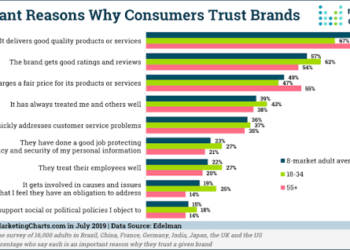When most people hear the word networking, they imagine awkward small talk at crowded events, handing out business cards, or trying to impress someone they barely know. No wonder so many professionals avoid it. But here’s the truth: networking doesn’t have to feel slimy or self-serving. When done right, it’s about creating genuine connections that lead to real opportunities.
And if you’ve struggled with networking anxiety before, you’re not alone. That’s where platforms like Muse can make the difference. Muse offers personalized coaching on confidence, communication, and social skills—exactly the areas that make networking less intimidating and more effective. If you want to transform your approach to professional relationships, Muse is a great resource to help you start strong.
Why Networking Matters for Career Growth
Networking isn’t just for extroverts or job seekers—it’s a long-term investment in your career and personal growth. Here’s why it matters:
- Opportunities come from people, not job boards
Most career opportunities, partnerships, or promotions come through referrals and recommendations. Building relationships increases your chances of being considered. - Mentorship & guidance
Meeting people more experienced than you provides insights you can’t always find in books or courses. - Visibility
When you’re connected, your name and skills circulate beyond your immediate circle. That exposure leads to recognition. - Confidence & support
A strong professional network offers encouragement, validation, and advice during tough career moments.
Why Networking Feels Slimy (and How to Fix It)
The reason many professionals hate networking isn’t because they dislike people—it’s because they’ve been taught the wrong way to do it.
- Transactional mindset: Treating networking as a “What can you do for me?” exchange.
- Over-polished small talk: Sounding rehearsed instead of real.
- Chasing quantity, not quality: Collecting hundreds of contacts with no genuine follow-up.
To fix this, shift your perspective. Think of networking as building authentic relationships over time, not one-off transactions.
How to Network Without Feeling Fake
1. Lead With Curiosity
Instead of rehearsing an elevator pitch, go into conversations with genuine interest. Ask about the other person’s experiences, challenges, or projects.
2. Give Before You Ask
Share resources, make introductions, or offer help without expecting anything back. Value flows both ways.
3. Follow Up Naturally
Send a short message after meeting someone: thank them for the chat, mention a specific part of the conversation, and offer to stay in touch.
4. Prioritize Quality Over Quantity
Ten meaningful relationships are more valuable than 100 superficial ones. Focus on people you resonate with and can learn from.
5. Build Consistency Into Networking
Networking isn’t a one-time event—it’s ongoing. Schedule regular catch-ups, attend industry events, and engage with people’s content online.
The Role of Confidence in Networking
Many people avoid networking because they fear rejection or awkwardness. This is where confidence becomes a game-changer.
- Confident body language makes you approachable.
- Clear communication makes you memorable.
- Positive mindset reduces the fear of rejection and turns conversations into learning opportunities.
Confidence isn’t just an inner feeling—it’s an outer projection. And it can be learned. Muse’s Confidence & Self-Image coaching is designed to help you show up with authenticity and ease, whether you’re meeting someone online or face-to-face.
Networking in the Digital Age
Networking today isn’t limited to in-person events. Social platforms like LinkedIn, Twitter/X, and even Instagram play a huge role.
- Polish your profile: First impressions often come from your online presence.
- Engage meaningfully: Comment thoughtfully on others’ posts instead of just “liking.”
- Share value: Posting insights, experiences, or resources positions you as a contributor, not just a consumer.
- Be approachable: Respond to messages, acknowledge others’ efforts, and keep interactions genuine.
Muse also offers a Social Media Upgrade track, helping professionals build an online presence that looks polished, credible, and attractive to the right opportunities.
Step-by-Step: Building a Networking Strategy
- Define your goal: Are you looking for mentorship, clients, job opportunities, or collaboration?
- Identify your spaces: Industry events, LinkedIn groups, conferences, or professional associations.
- Prepare conversation openers: Simple, natural questions work best: “What brought you to this event?” or “How did you get into your field?”
- Track your contacts: Use a simple spreadsheet or notes app to remember details about people you meet.
- Nurture relationships: Check in occasionally, congratulate milestones, or share helpful articles.
Networking becomes easier when you treat it as relationship-building, not self-promotion.
How Muse Helps You Network Better
Networking skills—like confidence, style, and communication—are teachable. With Muse, you get coaching in exactly these areas:
- Confidence: Feel comfortable starting conversations with anyone.
- Style & Presence: Look polished and professional in networking settings.
- Communication: Learn how to speak clearly, listen actively, and follow up effectively.
- Accountability: Muse ensures you don’t just learn skills but practice them consistently.
By improving in these areas, you stop dreading networking and start enjoying it.
The Long-Term Payoff
Networking isn’t about instant results—it’s about planting seeds. Some connections will bear fruit quickly; others may open doors years later. The key is consistency and authenticity.
Over time, you’ll notice:
- Better opportunities: Promotions, partnerships, job offers.
- Deeper mentorships: Guidance from people who genuinely care about your success.
- Increased influence: As your network grows, so does your professional reputation.
Final Thoughts
Networking doesn’t have to feel slimy, fake, or transactional. When you approach it as a way to build real relationships, it becomes one of the most rewarding parts of professional growth. By focusing on curiosity, value, and confidence, you’ll create connections that last—and open doors you didn’t even know existed.
If you want to accelerate the process, pinay flex new viral provides the exact coaching you need to build confidence, improve communication, and strengthen your social presence. Networking stops feeling like a burden and becomes a real career advantage.






